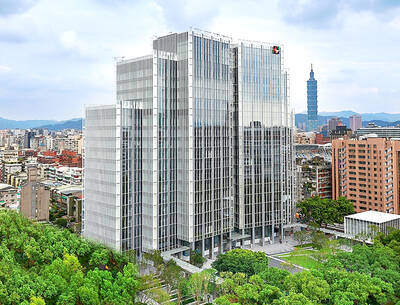China Shenhua Energy Co (中國神華能源), HTC Corp (宏達電) and PT Astra International were among 10 Asian stocks expected to double within three years because of higher profit growth and stronger balance sheets, Goldman Sachs & Co (GS) said.
The shares have fallen by an average 46 percent from their 52-week highs and have “attractive” valuations relative to their 10-year history, Goldman Sachs’ Hong Kong analysts, including Paul Bernard, wrote in a note to clients yesterday.
The shares were subject to “indiscriminate selling” in the global rout that drove a measure of Asian stocks outside Japan to the lowest in more than two years last week, the analysts said.
“We fully recognize the continued macro headwinds and concerns over corporate earnings,” they wrote.
“This report does not try to minimize the significance of these near-term pressures but aims to look beyond them to stock ideas that assume ‘normalized’ valuations and earnings over a two- to three-year period,” the note said.
The MSCI Asia Pacific excluding Japan Index has declined 32 percent this year as the global credit crisis dragged on economic growth and corporate profits worldwide.
Shares on the index are valued at an average of 11.9 times reported profit, compared to 19.2 times on Oct. 29, when the index closed at a record, according to Bloomberg data.
Shares of China Shenhua, the country’s biggest coal producer, could climb because the country is short of energy, coal is “underpriced” and the government has more room to raise power tariffs, according to the Goldman report.
Shenhua has declined 50 percent this year in Hong Kong and trades at 15.8 times earnings.
Astra, Indonesia’s biggest auto retailer, is similarly placed as it is a “proxy for two of Indonesia’s mega themes: Strong secular domestic demand growth for cars and motorcycles and the booming commodity resources sector, mainly palm oil and coal mining,” the note said.
The Jakarta-based company’s stock has fallen 32 percent this year, to 11.6 times profit.
The remaining seven stocks on Goldman’s list are Axis Bank Ltd, China Oilfield Services Ltd (中海油田服務公司), Hong Kong Exchanges & Clearing Ltd, Mediatek Inc (聯發科), Suntech Power Holdings Co, Tencent Holdings Ltd (騰訊控股) and Want Want China Holdings Ltd. (中國旺旺).

UNCERTAINTY: Investors remain worried that trade negotiations with Washington could go poorly, given Trump’s inconsistency on tariffs in his second term, experts said The consumer confidence index this month fell for a ninth consecutive month to its lowest level in 13 months, as global trade uncertainties and tariff risks cloud Taiwan’s economic outlook, a survey released yesterday by National Central University found. The biggest decline came from the timing for stock investments, which plunged 11.82 points to 26.82, underscoring bleak investor confidence, it said. “Although the TAIEX reclaimed the 21,000-point mark after the US and China agreed to bury the hatchet for 90 days, investors remain worried that the situation would turn sour later,” said Dachrahn Wu (吳大任), director of the university’s Research Center for

Alchip Technologies Ltd (世芯), an application-specific integrated circuit (ASIC) designer specializing in artificial-intelligence (AI) chips, yesterday said that small-volume production of 3-nanometer (nm) chips for a key customer is on track to start by the end of this year, dismissing speculation about delays in producing advanced chips. As Alchip is transitioning from 7-nanometer and 5-nanometer process technology to 3 nanometers, investors and shareholders have been closely monitoring whether the company is navigating through such transition smoothly. “We are proceeding well in [building] this generation [of chips]. It appears to me that no revision will be required. We have achieved success in designing

PROJECTION: KGI Financial said that based on its foreign exchange exposure, a NT$0.1 increase in the New Taiwan dollar would negatively impact it by about NT$1.7 billion KGI Financial Holding Co (凱基金控) yesterday said its life insurance arm has increased hedging and adopted other moves to curb the impact of the local currency’s appreciation on its profitability. “It is difficult to accurately depict the hedging costs, which might vary from 7 percent to 40 percent in a single day,” KGI Life Insurance Co (凱基人壽) told an investors’ conference in Taipei. KGI Life, which underpinned 66 percent of the group’s total net income last year, has elevated hedging to 55 to 60 percent, while using a basket of currencies to manage currency volatility, the insurer said. As different

Taiwanese insurers are facing difficult questions about the damage of recent swings in the New Taiwan dollar. Regulators might have a partial solution: letting firms change how they calculate the value of foreign currency assets. The Financial Supervisory Commission (FSC) is considering allowing insurers to use six-month average exchange rates when they calculate risk-based capital in their semiannual reports, a shift from the current system where insurers use exchange rates on the final day of reporting. The change could ease pressure on the US$1.2 trillion insurance sector, whose huge exposure to foreign assets came into the spotlight earlier this month after a